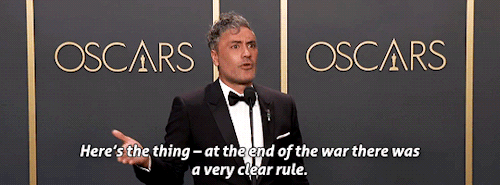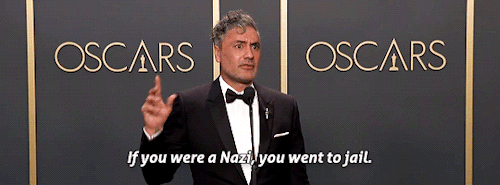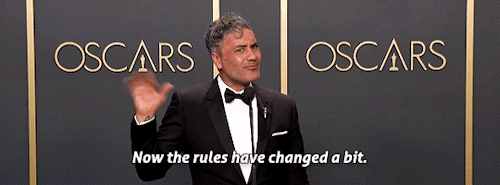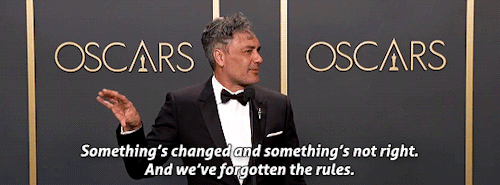Practicality With Poise And Purpose
Practicality with Poise and Purpose
Libraries are becoming one of the only true public spaces in community, and not all communities have them. As we become more developed and cramped for space, parks are dwindling and most other places to explore and learn also cost money: museums, gallerys, etc. Libraries are also unique as they not only provide education access to books, movies, or night classes sometimes they also are public spaces that hold discussions and talks where those who are not as connected to the community or have a unique or newly peaked interest can explore and connect.
Growing up in a wealthier neighborhood, my local library expanded to introduce scientific talks with epidemiologists, chemists, pharmaceutical companies where these guest lectures would visit and speak, but then give us the ability to ask questions, and have discussion among ourselves. Overtime, similar topics brought similar people together and you got to meet those in your community that you became more attached to that you otherwise wouldn’t have known. Similar to more common library activities such as Mahjong, these events allowed that connectivity in diverse groups, with diverse ages and unique topics. It is important to remember that libraries as public spaces are not just for education or history knowledge, but future growth and exploration, discussion, a diverse community engagement and equality.
More Posts from Jjayolsen and Others
Cedric Diggoy
Cedric Diggory was an important character as he embodied all we missed out on, not knowing more Hufflepuff characters closely. Dumbledore’s speech about how he was a fierce friend, chose to do what’s right over what was easy, and was shown to constantly be his biggest opponent, not hating those who bested him but only trying to better himself.
It is these Hufflepuff traits that are one of the two main reasons this character has had such a profound impact. Being the complete opposite of boastful, even before Harry told him about the Dragons he tried to stop people hating on Harry, knowing there was enough Hogwarts pride to go around. This extends to the previous year when he catches the golden snitch just moments after the Dementors come onto the Quidditch field and paralyze Harry. He feels this wasn’t a fair win and as Captain, protests against their win to no prevail. A sentiment he carries even during the Quidditch World Cup when his father brags about how ‘’he beat thee Harry Potter!”

One could go on forever about Cedric, it really is no wonder why Cho loved him, (even thou I got the impression that if given both options she would’ve chosen Harry) but what equally sticks out is Cedric’s impact and representation of the innocent victims of war. While the film overall was horrendously shackled together, the scene in the film and book bring me to tears long before his death and their return to Hogwarts. He was just a good person, in the wrong place, at the wrong time. The reaction of his classmates and especially his father and the circumstances were meant to highlight how truly ugly and unnecessary war is. There was no reason for his death, and like most wars even the young men and children who survive physically lose their minds to it. Finally, on a small level, Harry’s guilt and other’s reactions for his survival and Cedric’s death reminds me of the understanding how death happens to those left behind; as while Cedric comes back as a ghost momentarily he thinks only of his parents and unknowingly remains as a force in Harry to stop Voldemort.
I still read
but I definitely read for different reasons now as there is less companionship that I need to fill in books or stories from far away

Relatable
The Lottery
I was never too fond of happily-ever-afters, and as I got older and learned how fictitious they were I became more annoyed by them as I felt, and feel, that they present a falseness that others allow themselves to remain within at the cost of others. But before the true fairy-tales of Cinderella or the Pillowman, the first story is Shirley Jackson’s “The Lottery”.
This story brings us more into a different perspective than most, like Samuel Jackson’s character in Unbreakable. We start off just seeing a small town coming together for this very important event, how this is an important event in this town and others big and small. While we don’t know what the event is and an entire town meeting ina square seems odd to us now, we know it used to happen and draw connections to how the children act the adults’ gossip, and the changing of the event over time. As the story continues, an undertone becomes more prevalent, young men are just starting to draw for their families, and a woman mentions about how fast time goes by, using the event as a marker and how some towns don’t participate at all.
What I love about this story is how much our perception changes as we learn more. We enter the story neutrally, then get excited and then try to hold onto that as we learn more. True artistry here comes from being able to challenge, surprise and have your reader’s perception and world be altered; and it is all down here.
The Lottery:
http://sites.middlebury.edu/individualandthesociety/files/2010/09/jackson_lottery.pdf
Karen Filippelli
Karen’s Best Moment: Season Three, Episode Six: Diwali
When she fakes taking the shots all night with Jim and Andy.

Karen’s Worst Moment: Season Four, Episode One: Fun Run
When we see in the flashback she screamed at Jim in the office kitchen in regards to their breakup.
Karen’s Best Line: Season Three, Episode Ten: A Benihana Christmas
“Are we taking this too far? You know what? I don’t think we’re taking this far enough”.
Most Memorable: Season Three, Episode Three: The Coup
When finding Jim struggling in Call of Duty first whispers to the camera crew
“Look how cute he is. And he’s trying to shoot with a smoke grenade”.
And then when Jim hears her a bit tells him “Nothing, you just concentrate on turning around” instructs him how to turn around, and then asks him
“Any last words? No?” before killing him.
Scrimgeour and Fudge
There are many different types of leaders in our world, teachers, pop stars, activists, CEOs and of course, actual political or governmental leaders. As within our daily world, the wizarding world showed Harry Potter and the rest of us that there are all types of leaders, even within the same field. Two of the biggest political leaders that would show different ends of the spectrum were Cornelius Fudge and Rufus Scrimgeour
Before we knew how bad things would get, we knew Fudge was an oaf. While some of his calls were good (increased efforts in protecting Harry Potter from Sirius Black), most of them were done out of self-preservation, for glory and prestige. Why he ever got involved in government, probably stems mostly from that wanting to see important as he portrayed no backbone, showed extreme jealousy and little critical skills. His role in the rise of Voldemort is not large, but important. As the spokesperson and leader of their world any small thing he did differently would have had a tremendous impact, but when the opportunity finally rose not only did he freeze at the challenge, he purposefully put everyone at greater risk just so he could keep his glory days. Seriously thou, what did he think was going to happen?

As former Head of the Auror Office, Scrimgeour was more experienced with the current priorities the ministry faced and was expected to be better at handling the situation when compared to Fudge as a leader. However, in terms of leadership, they were unfortunately, very similar. Considering the threat everyone was under and previous year of administrative secrecy, Scrimgeour should have operated with as much transparency as possible for both the safety and trust of the wizarding and muggle world. Instead, he was very much like Fudge: temperamental, would push for ridiculous propaganda with Harry Potter and bogus arrests, and an illogical paranoia and hatred against Dumbledore. While his death and life focused on the greater good, one cannot help but wonder what would have happened, how many more lives would have been saved, if he were more like Potterwatch being honest, hopeful and encourages those to not only fight for themselves but for others.
Our Shared Universe: Human Experience
What is truly beautiful and most show by JK Rowlings’ Harry Potter series, but also by many other books (Sakura and the 1,000 paper cranes and the new book-to-movie adaption To all the boys I’ve loved before, is that while our cultures are different, part of us are all the same. WE ARE ALL HUMAN. While some believe in the human being split and others believe in the red string; most of us all have similarities with those very different from ourselves and even if we cannot meet these people face to face, we meet them in the stories that reflect ours, but are just slightly different.
At the entrance to the Peace Park people filed through the memorial building in silence. On the walls were photographs of the dead and dying in a ruined city. The atom bomb—the Thunderbolt—had turned Hiroshima into a desert. Sadako didn’t want to look at the frightening pictures. She held tight to Chizuko’s hand and walked quickly through the building. -- Sakura and the 1,000 paper cranes
Is this not how the US currently deals with September 11th, there is respect, there is honor, there is fear and confusion.
Who framed Roger Rabbit
And believe me when I say all I hope for is that you’re okay
Because there are some things we never get over,
some things we can never live without,
some things that are more of who we are that make sense--and you are one of them.

Parts Unknown
Libraries are not just about books and education; sometimes a connection doesn’t come from a written word or common experience but the opening up of one’s experiences and becoming vulnerable. Libraries have all different mediums for these connections and sometimes the break in the sentence, flutter in the eye you experience directly adds to the depth of the spoken word that cannot be expressed by their writing. Diversity in writing, community and stories includes diversity of media.
Ugh; Anthony Bourdain’s Buenos Aires episode. I hope you can hear us all now, you did so much more than just shove food in your mouth.
Highlighting the significance of how the food is prepared to the culture and history and individual--it’s why the show wasn’t called something generically--food “Unknown”, but parts unknown.
Parts of diets we don’t know of, parts of the world we don’t know of, parts of ourselves we don’t know of.
Thank you, I miss you--> I’ve been missing you





”So I feel like this is the perfect time for a film like this. I feel like the film has become more important and more relevant today, which is a sad thing.” – Oscar Winner Taika Waititi in the Press Room
Robert California
Robert’s Best Moment: Season Eight, Episode Ten: Christmas Wishes
When he doesn’t sleep with Erin.

Robert’s Worst Moment: Season Eight, Episode Eighteen: Last Day In Florida
When he plans on firing whoever the VP is of the Sabre store.
Robert’s Best Line: Season Eight, Episode Five: Spooked
“When I was a boy, there was an empty house just up the hill from my family’s. It was rumored a man committed suicide there after being possessed by the devil. One day a young woman, Lydia, moved into the house with her infant child.
That very night, Lydia was awakened by a loud heinous hissing sound. She walked to the nursey and there in baby’s crib was a snake wrapped around baby’s neck. Squeezing tighter and tighter, the crib was full of dirt, baby struggled to free itself from underneath. Reaching and clawing, gasping for air, embalmed bodies rose from their sarcophagi, learching toward baby-- for they were mummies.
Amongst them was a man, tall, slim-- almost instinctively she turned to her husband, “oh, wait” she thought “I don’t have a husband”. For Lydia and her husband had had an argument, one they couldn’t get past. Each night they slept one inch farther apart until one-night Lydia left. It was about this time, she lost herself in imaginary worlds. She had quit the book club, the choir, citing something about their high expectations. Her lips slowly grew together from disuse, every time she wanted to act and didn’t another part of her face hardened until it was stone.
And that fevered night she rushed to the nursery, threw open the door “Baby are you okay?”. Baby sat up slowly, turned to mother, and said “I’m fine Bitch. I’m fine.”
Robert’s Most Memorable Moment: Season Eight, Episode One: The List
When he acts as if calling half of his subordinates losers is not a big deal; “it’s on them to prove him right or wrong”.
